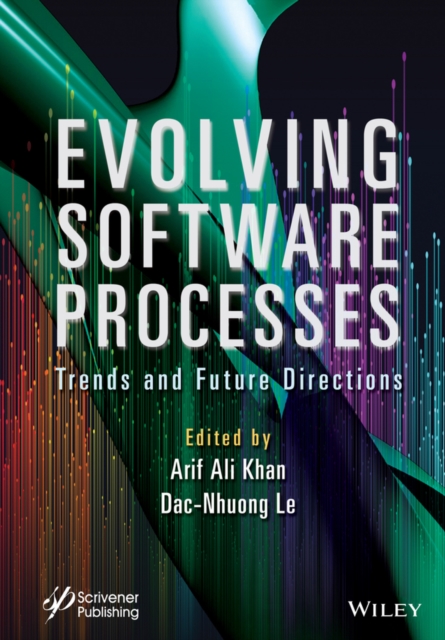
Evolving Software Processes : Trends and Future Directions PDF
Edited by Arif Ali Khan, Dac-Nhuong Le
Description
EVOLVING SOFTWARE PROCESSES
The book provides basic building blocks of evolution in software processes, such as DevOps, scaling agile process in GSD, in order to lay a solid foundation for successful and sustainable future processes.
One might argue that there are already many books that include descriptions of software processes. The answer is yes, but. Becoming acquainted with existing software processes is not enough. It is tremendously important to understand the evolution and advancement in software processes so that developers appropriately address the problems, applications, and environments to which they are applied. Providing basic knowledge for these important tasks is the main goal of this book.
Industry is in search of software process management capabilities. The emergence of the COVID-19 pandemic emphasizes the industry s need for software-specific process management capabilities. Most of today s products and services are based to a significant degree on software and are the results of largescale development programs. The success of such programs heavily depends on process management capabilities, because they typically require the coordination of hundreds or thousands of developers across different disciplines. Additionally, software and system development are usually distributed across geographical, cultural and temporal boundaries, which make the process management activities more challenging in the current pandemic situation.
This book presents an extremely comprehensive overview of the evolution in software processes and provides a platform for practitioners, researchers and students to discuss the studies used for managing aspects of the software process, including managerial, organizational, economic and technical. It provides an opportunity to present empirical evidence, as well as proposes new techniques, tools, frameworks and approaches to maximize the significance of software process management.
Audience
The book will be used by practitioners, researchers, software engineers, and those in software process management, DevOps, agile and global software development.
Information
-
Download - Immediately Available
- Format:PDF
- Publisher:Wiley
- Publication Date:05/01/2022
- Category:
- ISBN:9781119821762
Information
-
Download - Immediately Available
- Format:PDF
- Publisher:Wiley
- Publication Date:05/01/2022
- Category:
- ISBN:9781119821762






